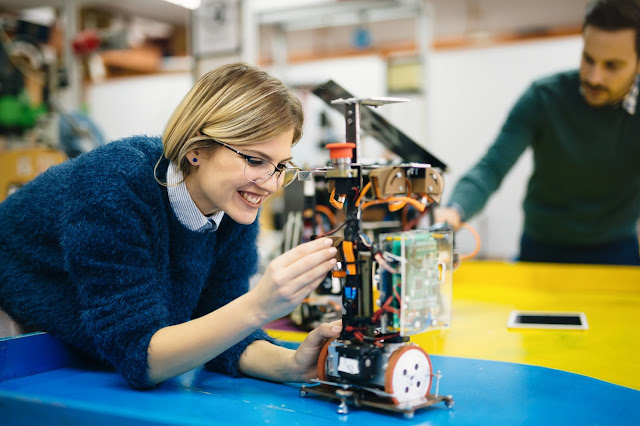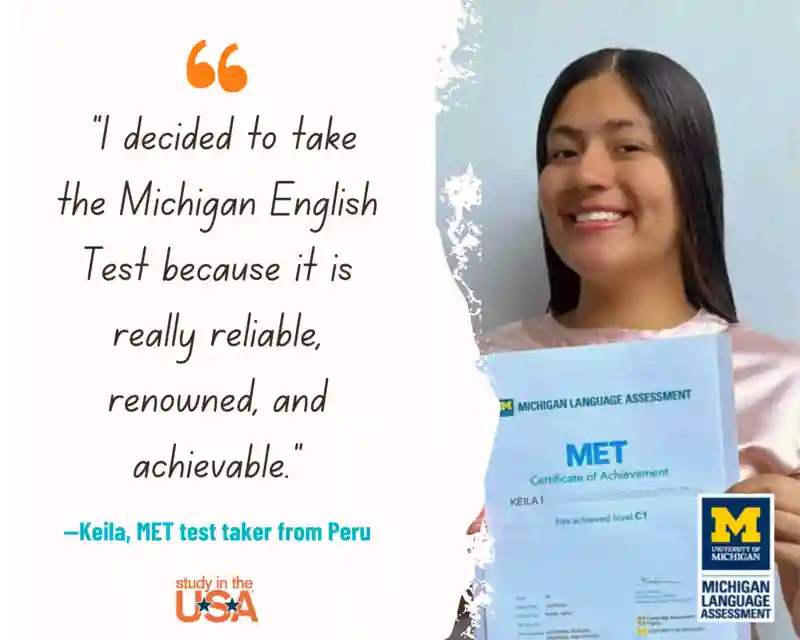Why Study Engineering in the USA

Engineering is quickly becoming one of the largest professions in the United States. There is no better place to study engineering.
There are many unique answers when posing the question of “How?” How does this chair hold me up? How is that I can talk on my cell phone or chat on the Internet with someone across the world? How did this water in my glass become clean? Although the answer to each of these questions is unique, there is one simple explanation for all of these questions: engineering.
No matter where you are in the world, the evidence of engineering is universal. Today, engineers are developing solutions and building the latest technologies for everything from smart phones to solving the world’s most dire problems. The rapid pace of technology and the scarcity of natural resources have made the demand for engineers greater than ever.
The motivation to pursue an engineering degree may differ from student to student. For some, it is the desire to have a successful and profitable career. Others want to bring advancement and a better future to their communities. Then there are students who are drawn to the field because they are naturally curious about how things work.
Your motivation may be unique, but your ambition to study engineering in the USA is not. Every year, more and more international students come to the United States to pursue undergraduate, graduate and doctorate engineering degrees. According to the 2010/11 Open Doors Report, 135,592 international students were enrolled in U.S. engineering programs. It is one of the most popular fields of study among international students.
You may choose to study engineering for humanitarian reasons or because you desire a financially successful career, but no matter your reasoning, know that your talents are in high-demand and you have the ability to change the world.
University of Arkansas - Microelectronics-Photonics Program
Imagine if a soccer team's jerseys were made of fabric capable of continuously monitoring and communicating athletes' breathing rates, heart rates and temperatures to the coaching and training staff on the sidelines. Imagine that this same material could also be used for a baby’s mattress to help parents monitor their child.
Joseph Batta-Mpouma, a doctoral student, is working to turn this idea of smart textiles and exotic surfaces from mere fantasy to reality.
Batta-Mpouma studies in the University of Arkansas’ Interdisciplinary Microelectronics-Photonics program and is a member of the Bionanotechnology research group at the Institute for Nanoscience and Engineering.
Microelectronics-Photonics is the study of micro to nano scale materials, processes, and devices for applications including: electronic circuits and components; sensors (electromechanical, physical, chemical and biological sensors); and light generation, detection, emission, and manipulation. This research space between traditional departmental-based programs is where science and engineering converge.
Another doctoral student in the microelectronics-photonics program, Morgan Roddy, recently won an award for his Solid-State Inflation Balloon deorbiter, which is a deorbit system for CubeSats, a class of small satellites. Deorbit systems are important because international agreements dictate that any spacecraft must deorbit within 25 years to mitigate the accumulation of space junk.
Batta-Mpouma, Roddy and other microelectronics-photonics students are innovators who work across disciplines, making discoveries that will power a better tomorrow.
Study in the USA ®
Get matched to the best program for you
Let us know what you're looking for so we can find the best school for you.
Useful Articles
Check Out These Schools

Arizona State University-Global Launch Intensive English Program
$1,000—$5,000 Session


Suffolk County Community College
$10,000 — $15,000 Year

University of North Georgia
Typical cost per Year: $15,000—$20,000

Portland Community College
Typical cost per Year: $10,000 — $15,000

Glendale Community College
Typical cost per Year: $5,000—$10,000
Start your U.S. adventure with Study in the USA

Learn About U.S. education financing, housing, and more
Resources
Learn about American culture and education direct from our experts at Study in the USA. Read more













